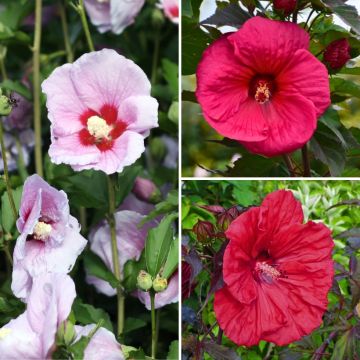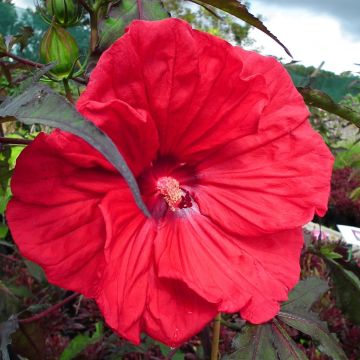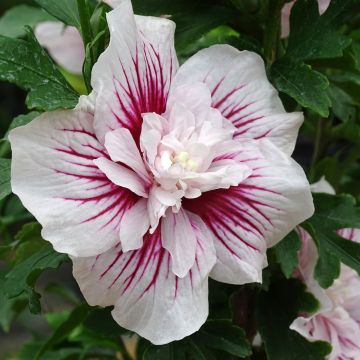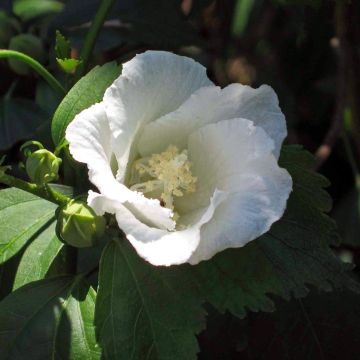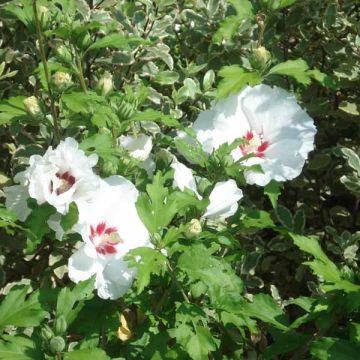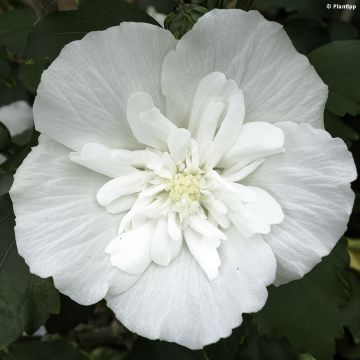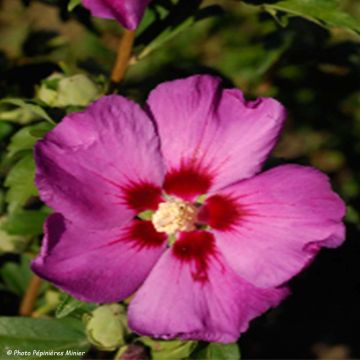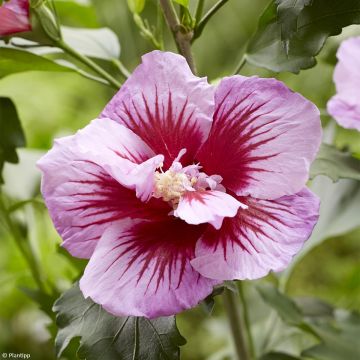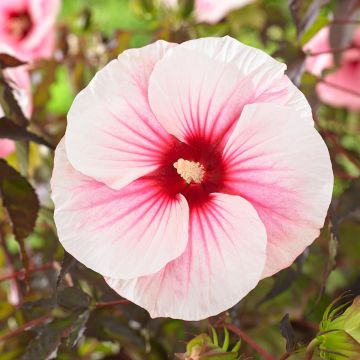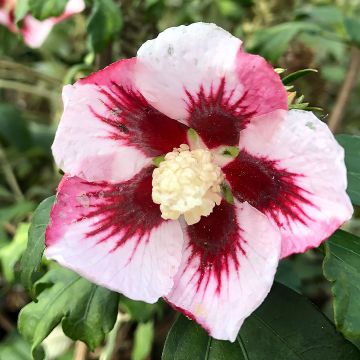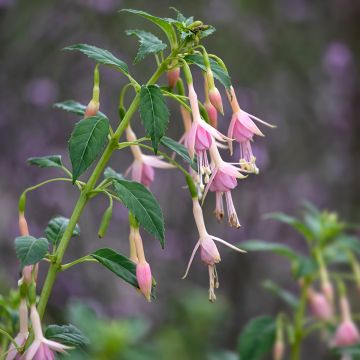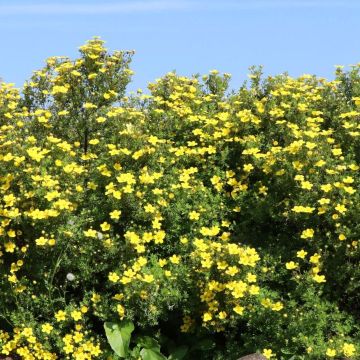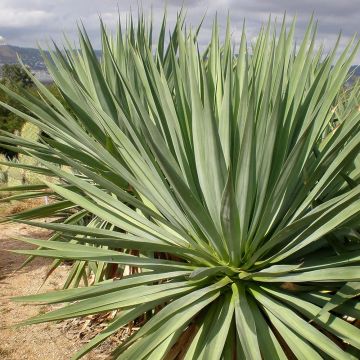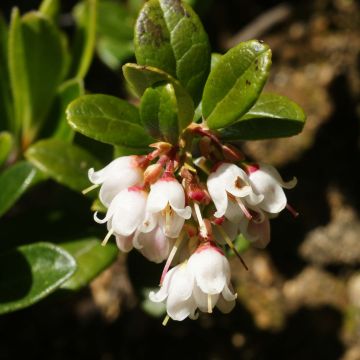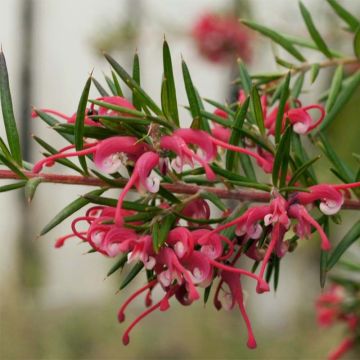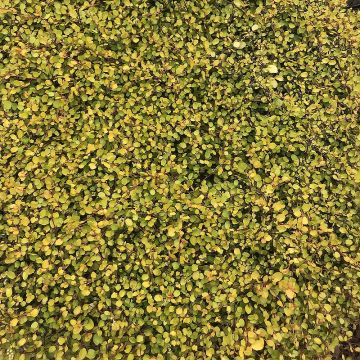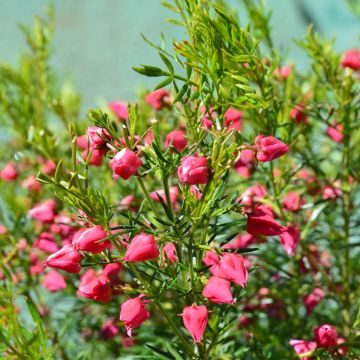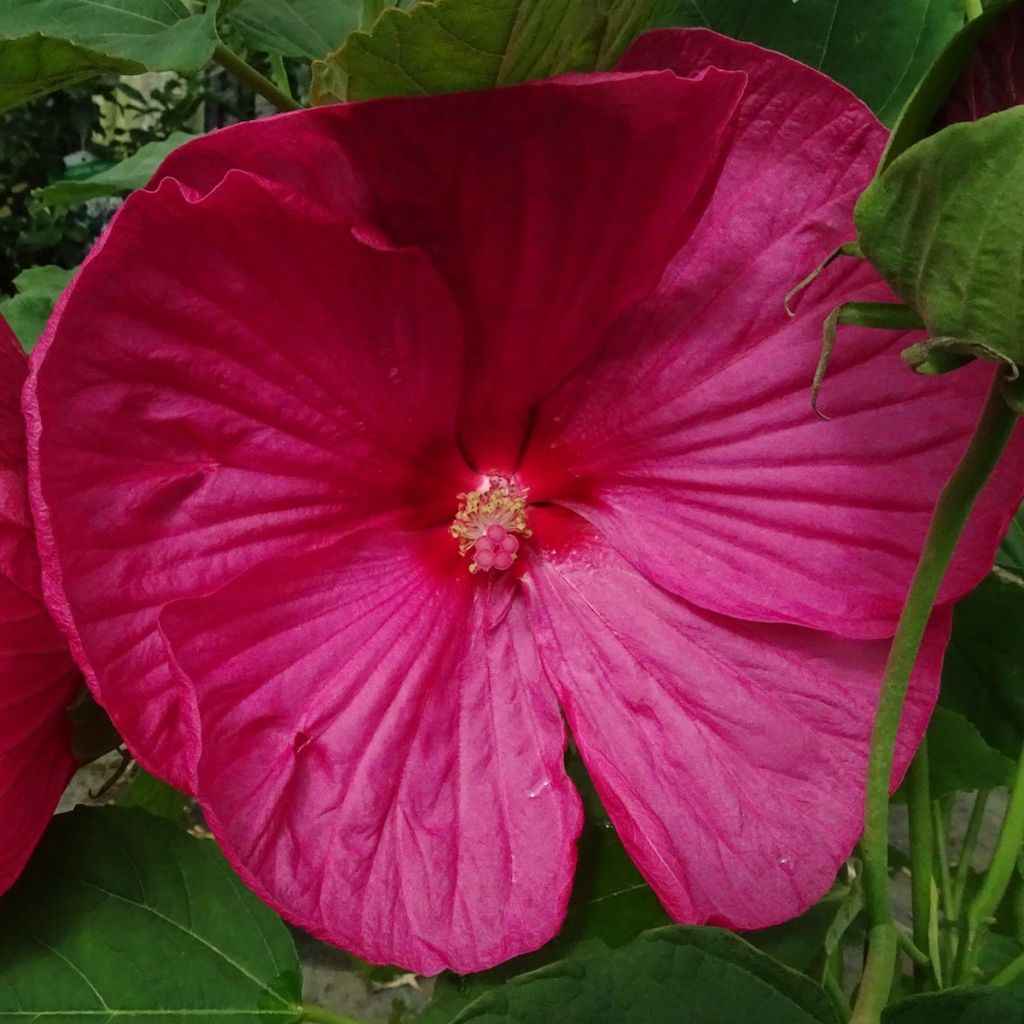

Hibiscus moscheutos Pink - Swamp Rose Mallow
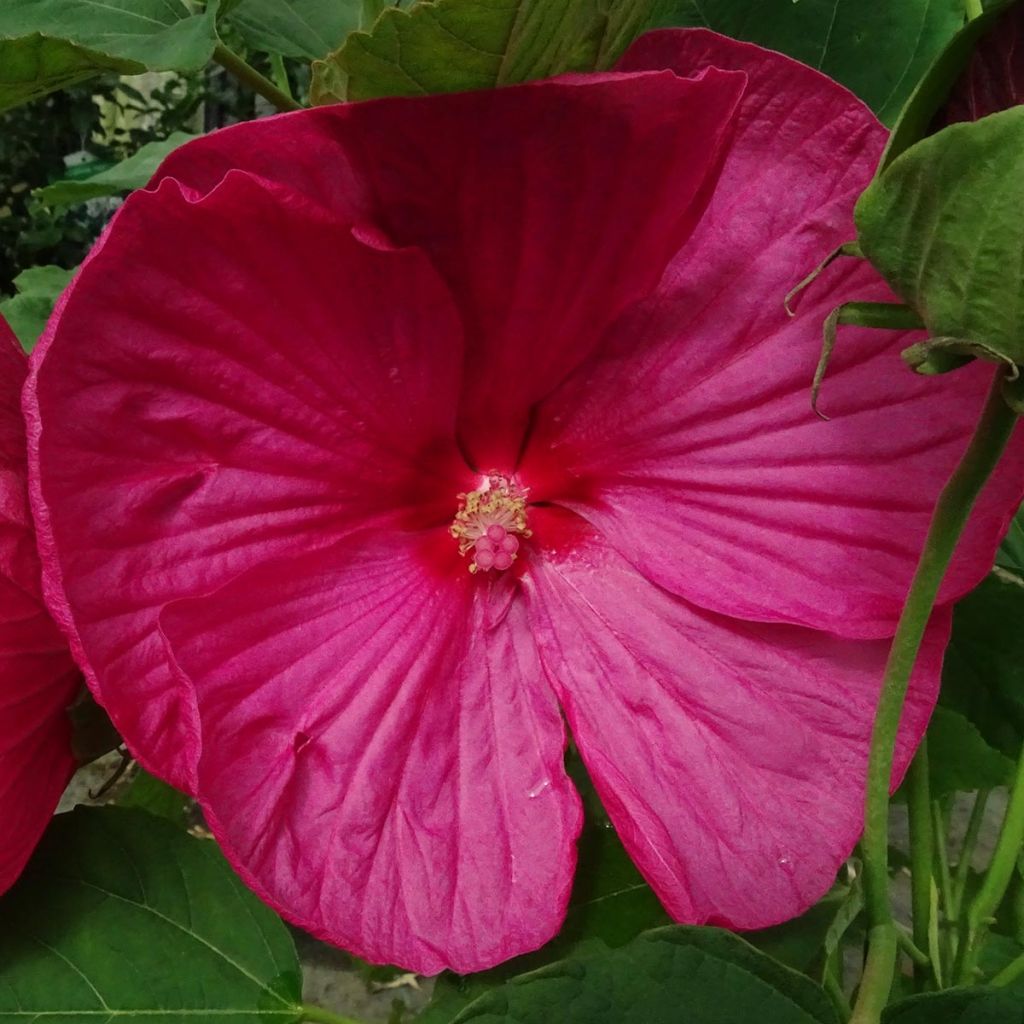

Hibiscus moscheutos Pink - Swamp Rose Mallow
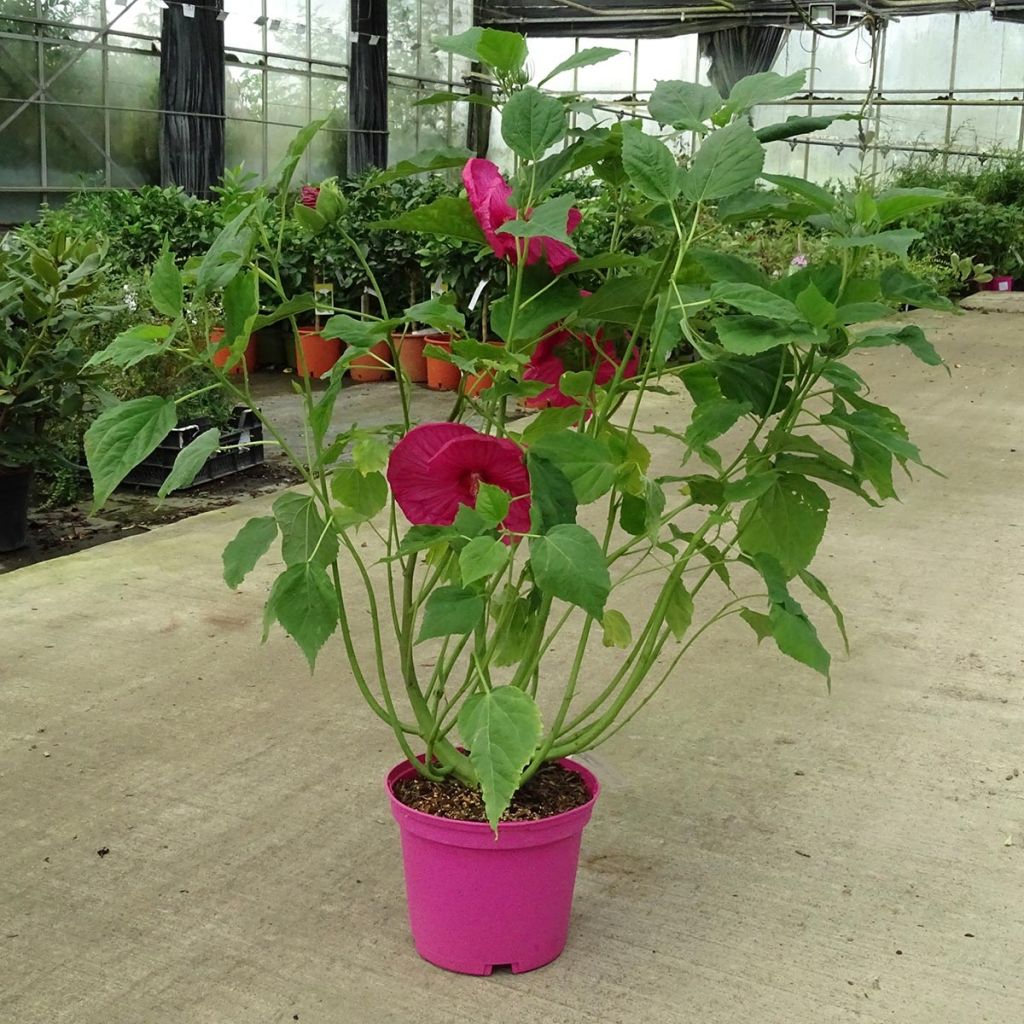

Hibiscus moscheutos Pink - Swamp Rose Mallow
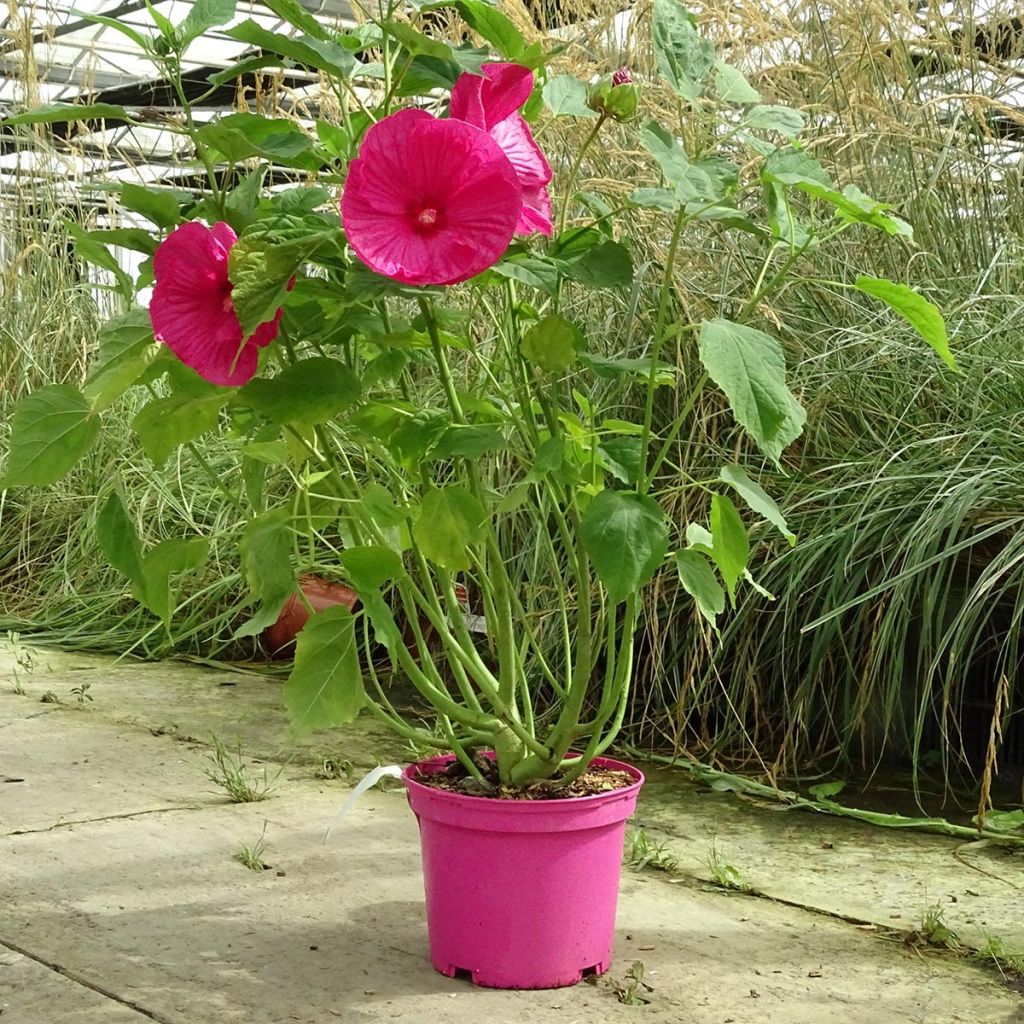

Hibiscus moscheutos Pink - Swamp Rose Mallow
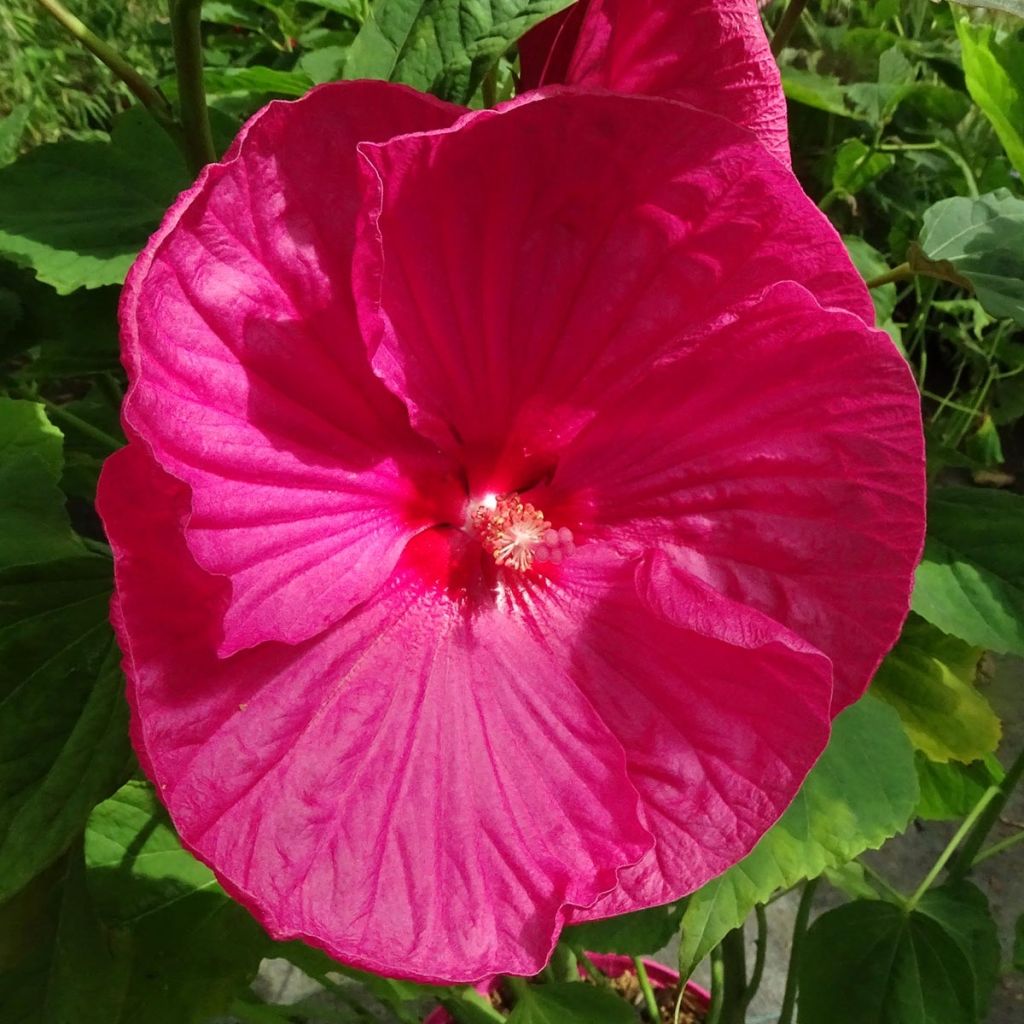

Hibiscus moscheutos Pink - Swamp Rose Mallow
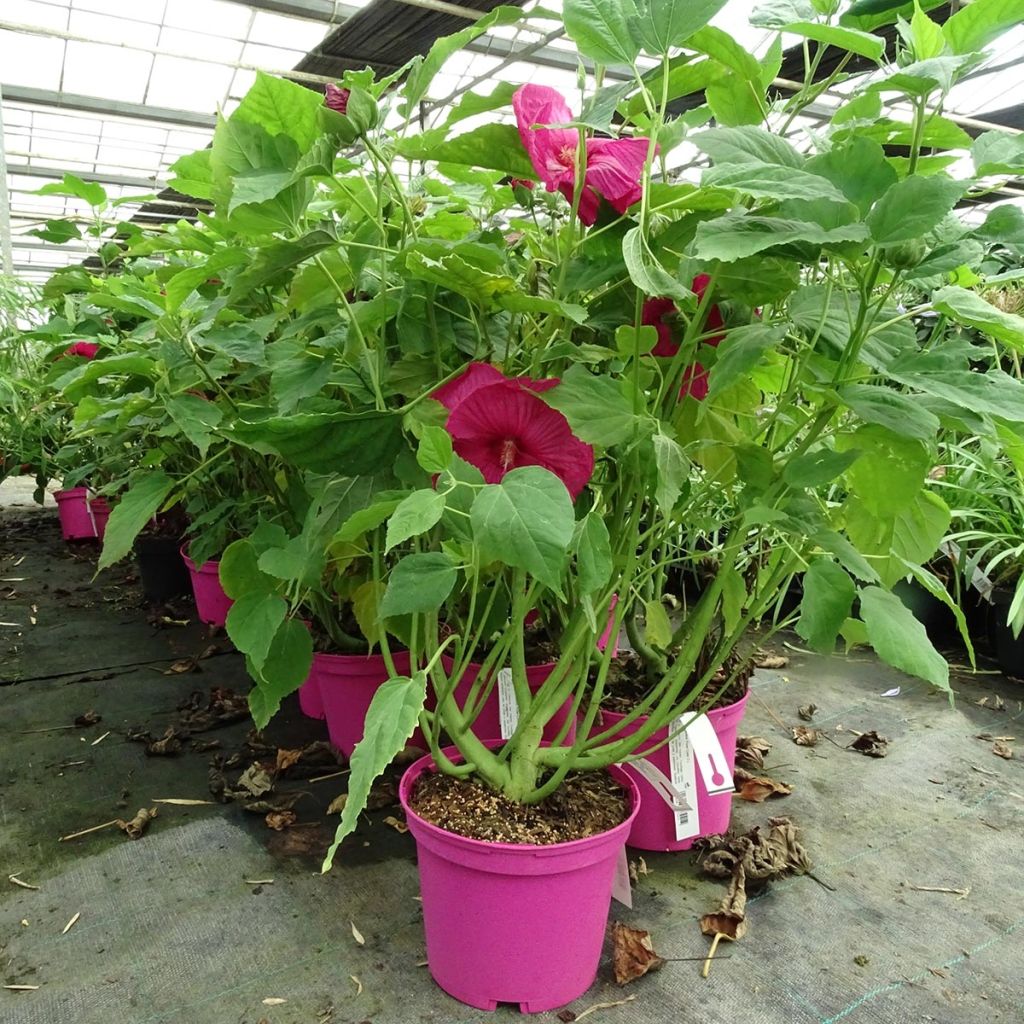

Hibiscus moscheutos Pink - Swamp Rose Mallow
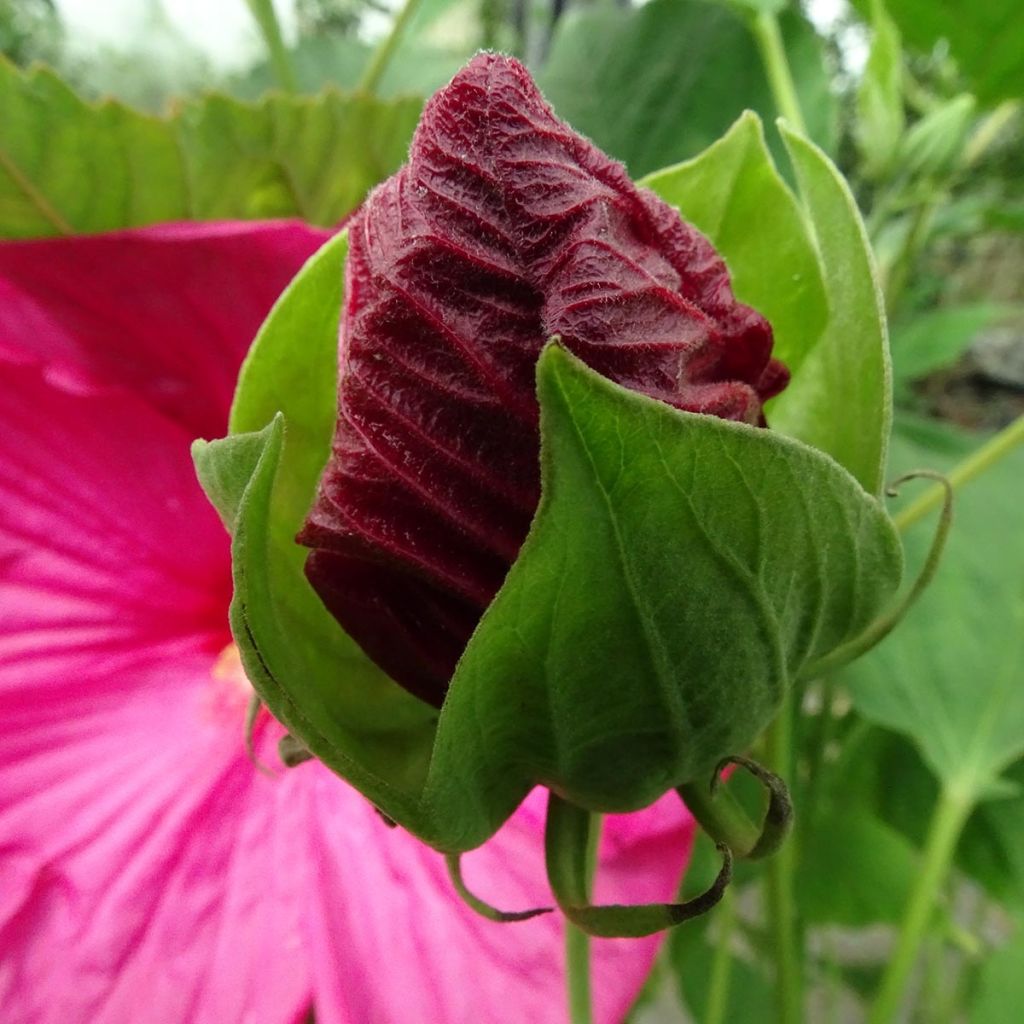

Hibiscus moscheutos Pink - Swamp Rose Mallow
Hibiscus moscheutos Pink - Swamp Rose Mallow
Hibiscus moscheutos Rose
Swamp Rose Mallow, Eastern Rose Mallow, Crimsoneyed Rose Mallow, Marsh Hibiscus
This item cannot be shipped to the selected country
Delivery charge from €5.90
Delivery to Corse prohibited
More information
Schedule delivery date,
and select date in basket
This plant carries a 24 months recovery warranty
More information
We guarantee the quality of our plants for a full growing cycle, and will replace at our expense any plant that fails to recover under normal climatic and planting conditions.
From €5.90 for pickup delivery and €6.90 for home delivery
Express home delivery from €8.90.
Delivery to Corse prohibited: UE law prohibits the import of this plant from mainland France to Corse as part of the fight against Xylella fastidiosa. Please accept our sincere apologies.
More information
Does this plant fit my garden?
Set up your Plantfit profile →
Description
Hibiscus moscheutos 'Pink' is a stunning variety of marsh hibiscus that produces large and vibrant pink flowers for a significant portion of the summer. The plant also boasts beautiful, decorative green, lobed foliage even outside of the flowering season. This magnificent perennial hibiscus prefers waterlogged soil and is an excellent choice for planting near water features or in large, very moist containers on the terrace.
Hibiscus moscheutos, also known as Hibiscus palustris, is a plant with a woody rootstock that belongs to the Malvaceae family. It is similar to mallow and hollyhocks and grows in the marshes of the southern United States, where it can grow as tall as 2 metres (6 feet 7 inches). In our climate, it produces upright stems and forms a bush in late spring. Horticulturists love this plant and have developed many cultivars with larger flowers and increased floribundity.
One of the most beautiful cultivars is the 'Rose' variety. It grows into a bushy clump and can reach a height of 1.5 metres (4 feet 11 inches) and a spread of 1.2 metres (3 feet 11 inches) in a single season. The large, single flowers are satin-textured and have a bright colour that can measure up to 25 cm (9.8 in) in diameter. The colour is fresh and vibrant, combining the elegance of pure pink with slightly crinkled petals. The large leaves, sometimes toothed in this selection, are divided into pointed lobes and have a light green colour. They add ornamental value throughout the growing season.
The Marsh Hibiscus is a distinctive plant with large flowers that can be challenging to incorporate into a natural outdoor setting. Some people love it, while others find integrating it into their garden challenging. It can be a great addition to a contemporary or an exotic garden, especially one with a water feature or a terrace. The Marsh Hibiscus can withstand temperatures as low as -10/-12°C (14/10.4°F) but may not do well in cooler climates. It is ideal for saturated beds or the edge of a pond. It looks great when accompanied by other plants like Gunnera, Cannas, Ethiopian Arum, Rodgersia Chocolate Wings, or Colocasia Esculenta.
Report an error about the product description
Hibiscus moscheutos Pink - Swamp Rose Mallow in pictures
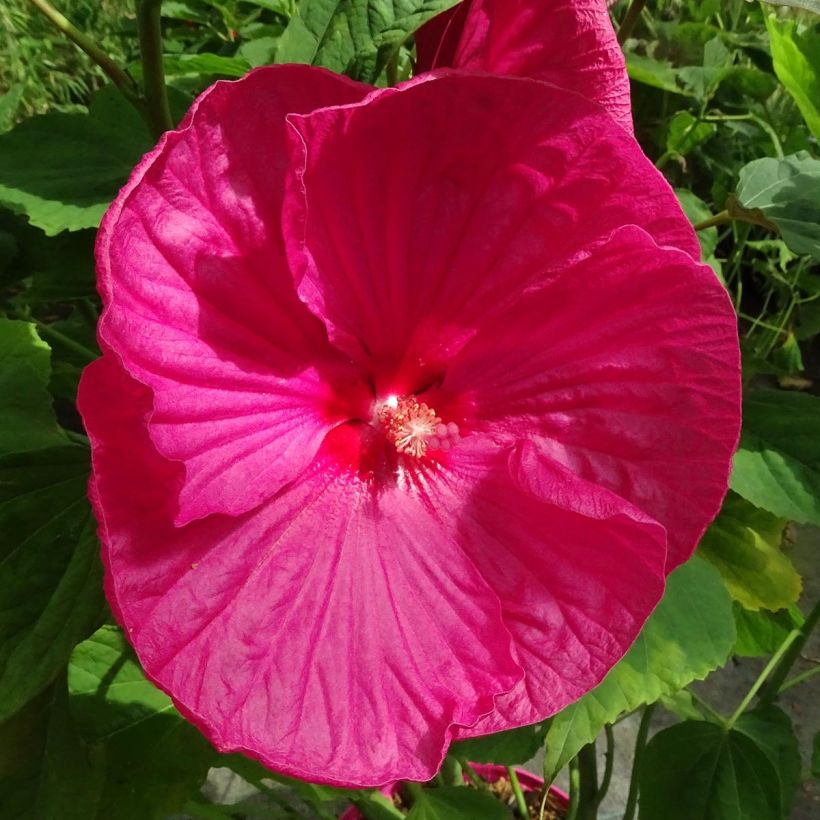

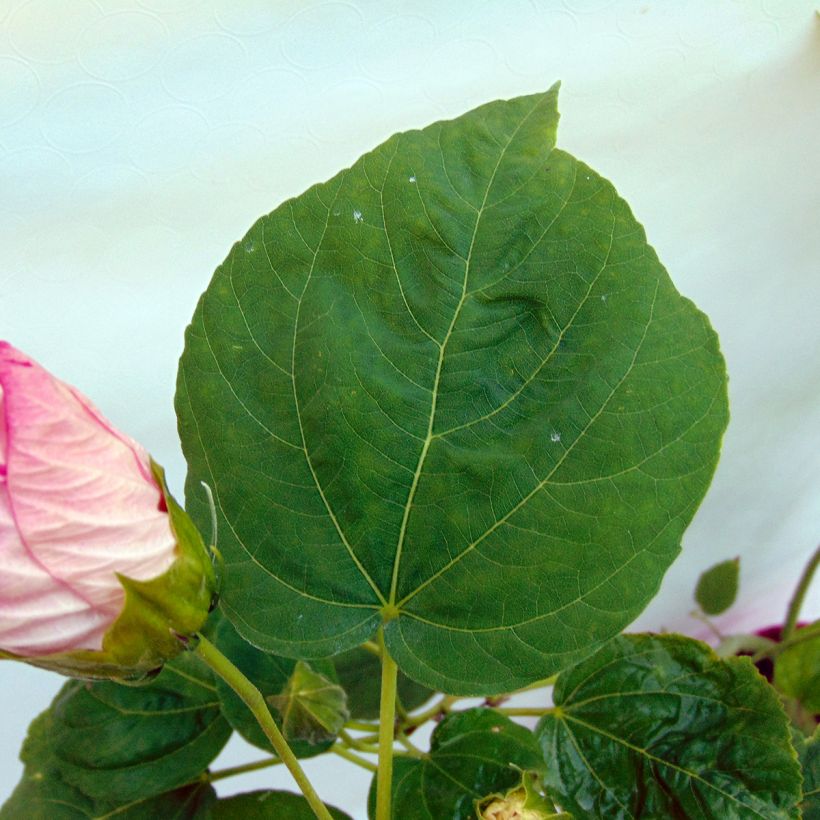

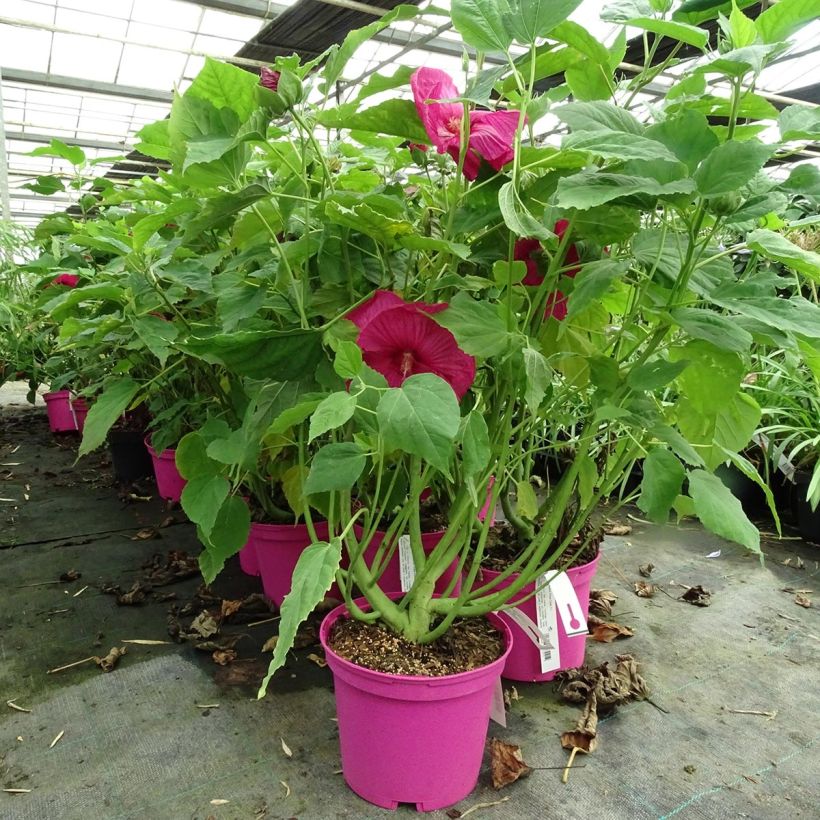

Plant habit
Flowering
Foliage
Botanical data
Hibiscus
moscheutos
Rose
Malvaceae
Swamp Rose Mallow, Eastern Rose Mallow, Crimsoneyed Rose Mallow, Marsh Hibiscus
Cultivar or hybrid
Other Hibiscus
Planting and care
The Hibiscus genus includes perennials that disappear above ground in winter. These marsh plants can be planted alongside Hardy Hibiscus or cold-hardy banana plants in warm and moist soil. While hardy down to -15°C (5 °F) in our garden, they require winter protection in colder climates. Protecting the stump from excessive winter moisture helps the plant withstand the cold better.
To create a bed, dig a hole 40 cm (15.7 in) in all directions, line it with waterproof film and fill it with a mixture of good garden soil and fertiliser. Keep the soil moist during the shooting and flowering period. In October, when the leaves turn yellow, keep the soil moist and trim the stems to 5 cm (2 in) above the ground in late autumn. Growth restarts late in the spring, April-May, depending on the climate.
Planting period
Intended location
Care
-
, onOrder confirmed
Reply from on Promesse de fleurs
Summer-flowering shrubs
Haven't found what you were looking for?
Hardiness is the lowest winter temperature a plant can endure without suffering serious damage or even dying. However, hardiness is affected by location (a sheltered area, such as a patio), protection (winter cover) and soil type (hardiness is improved by well-drained soil).

Photo Sharing Terms & Conditions
In order to encourage gardeners to interact and share their experiences, Promesse de fleurs offers various media enabling content to be uploaded onto its Site - in particular via the ‘Photo sharing’ module.
The User agrees to refrain from:
- Posting any content that is illegal, prejudicial, insulting, racist, inciteful to hatred, revisionist, contrary to public decency, that infringes on privacy or on the privacy rights of third parties, in particular the publicity rights of persons and goods, intellectual property rights, or the right to privacy.
- Submitting content on behalf of a third party;
- Impersonate the identity of a third party and/or publish any personal information about a third party;
In general, the User undertakes to refrain from any unethical behaviour.
All Content (in particular text, comments, files, images, photos, videos, creative works, etc.), which may be subject to property or intellectual property rights, image or other private rights, shall remain the property of the User, subject to the limited rights granted by the terms of the licence granted by Promesse de fleurs as stated below. Users are at liberty to publish or not to publish such Content on the Site, notably via the ‘Photo Sharing’ facility, and accept that this Content shall be made public and freely accessible, notably on the Internet.
Users further acknowledge, undertake to have ,and guarantee that they hold all necessary rights and permissions to publish such material on the Site, in particular with regard to the legislation in force pertaining to any privacy, property, intellectual property, image, or contractual rights, or rights of any other nature. By publishing such Content on the Site, Users acknowledge accepting full liability as publishers of the Content within the meaning of the law, and grant Promesse de fleurs, free of charge, an inclusive, worldwide licence for the said Content for the entire duration of its publication, including all reproduction, representation, up/downloading, displaying, performing, transmission, and storage rights.
Users also grant permission for their name to be linked to the Content and accept that this link may not always be made available.
By engaging in posting material, Users consent to their Content becoming automatically accessible on the Internet, in particular on other sites and/or blogs and/or web pages of the Promesse de fleurs site, including in particular social pages and the Promesse de fleurs catalogue.
Users may secure the removal of entrusted content free of charge by issuing a simple request via our contact form.
The flowering period indicated on our website applies to countries and regions located in USDA zone 8 (France, the United Kingdom, Ireland, the Netherlands, etc.)
It will vary according to where you live:
- In zones 9 to 10 (Italy, Spain, Greece, etc.), flowering will occur about 2 to 4 weeks earlier.
- In zones 6 to 7 (Germany, Poland, Slovenia, and lower mountainous regions), flowering will be delayed by 2 to 3 weeks.
- In zone 5 (Central Europe, Scandinavia), blooming will be delayed by 3 to 5 weeks.
In temperate climates, pruning of spring-flowering shrubs (forsythia, spireas, etc.) should be done just after flowering.
Pruning of summer-flowering shrubs (Indian Lilac, Perovskia, etc.) can be done in winter or spring.
In cold regions as well as with frost-sensitive plants, avoid pruning too early when severe frosts may still occur.
The planting period indicated on our website applies to countries and regions located in USDA zone 8 (France, United Kingdom, Ireland, Netherlands).
It will vary according to where you live:
- In Mediterranean zones (Marseille, Madrid, Milan, etc.), autumn and winter are the best planting periods.
- In continental zones (Strasbourg, Munich, Vienna, etc.), delay planting by 2 to 3 weeks in spring and bring it forward by 2 to 4 weeks in autumn.
- In mountainous regions (the Alps, Pyrenees, Carpathians, etc.), it is best to plant in late spring (May-June) or late summer (August-September).
The harvesting period indicated on our website applies to countries and regions in USDA zone 8 (France, England, Ireland, the Netherlands).
In colder areas (Scandinavia, Poland, Austria...) fruit and vegetable harvests are likely to be delayed by 3-4 weeks.
In warmer areas (Italy, Spain, Greece, etc.), harvesting will probably take place earlier, depending on weather conditions.
The sowing periods indicated on our website apply to countries and regions within USDA Zone 8 (France, UK, Ireland, Netherlands).
In colder areas (Scandinavia, Poland, Austria...), delay any outdoor sowing by 3-4 weeks, or sow under glass.
In warmer climes (Italy, Spain, Greece, etc.), bring outdoor sowing forward by a few weeks.

































